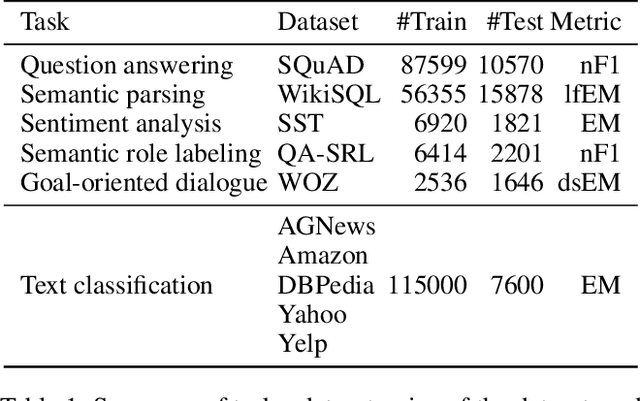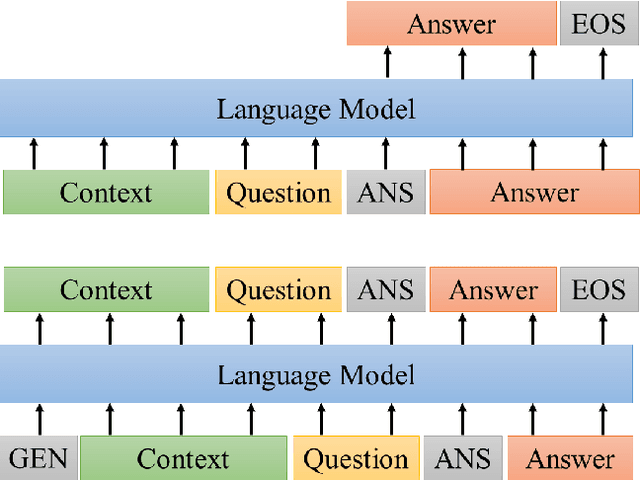Cheng-Hao Ho
Investigation of Sentiment Controllable Chatbot
Jul 11, 2020



Abstract:Conventional seq2seq chatbot models attempt only to find sentences with the highest probabilities conditioned on the input sequences, without considering the sentiment of the output sentences. In this paper, we investigate four models to scale or adjust the sentiment of the chatbot response: a persona-based model, reinforcement learning, a plug and play model, and CycleGAN, all based on the seq2seq model. We also develop machine-evaluated metrics to estimate whether the responses are reasonable given the input. These metrics, together with human evaluation, are used to analyze the performance of the four models in terms of different aspects; reinforcement learning and CycleGAN are shown to be very attractive.
LAMAL: LAnguage Modeling Is All You Need for Lifelong Language Learning
Sep 07, 2019



Abstract:Most research on lifelong learning (LLL) applies to images or games, but not language. Here, we introduce LAMAL, a simple yet effective method for LLL based on language modeling. LAMAL replays pseudo samples of previous tasks while requiring no extra memory or model capacity. To be specific, LAMAL is a language model learning to solve the task and generate training samples at the same time. At the beginning of training a new task, the model generates some pseudo samples of previous tasks to train alongside the data of the new task. The results show that LAMAL prevents catastrophic forgetting without any sign of intransigence and can solve up to five very different language tasks sequentially with only one model. Overall, LAMAL outperforms previous methods by a considerable margin and is only 2-3\% worse than multitasking which is usually considered as the upper bound of LLL. Our source code is available at https://github.com/xxx.
 Add to Chrome
Add to Chrome Add to Firefox
Add to Firefox Add to Edge
Add to Edge